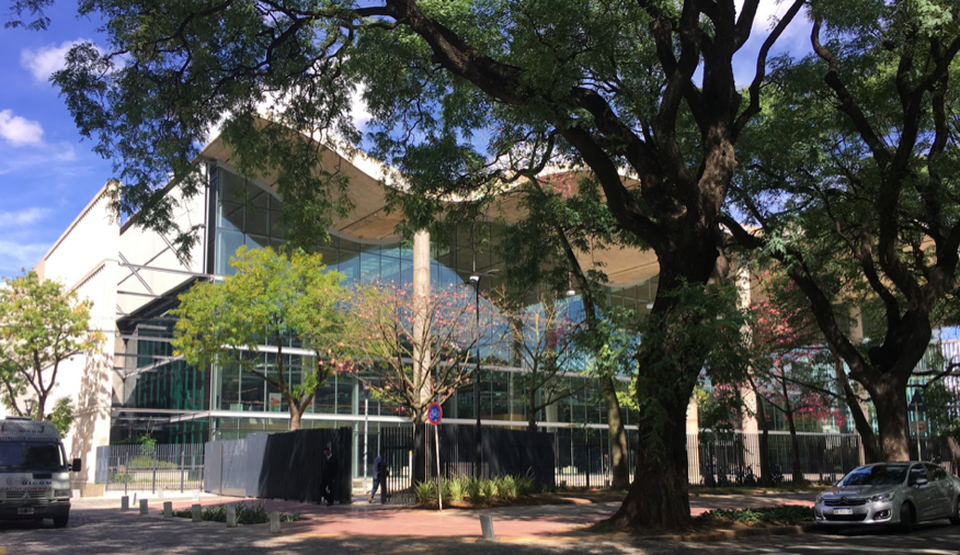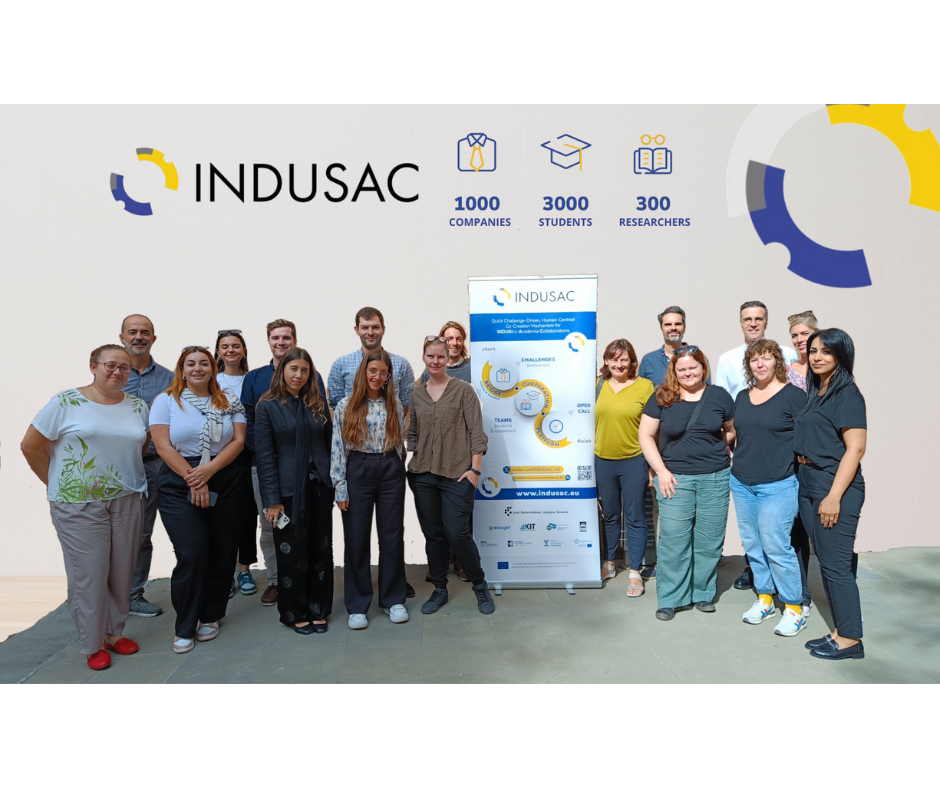Around the world, in places like Barcelona, Paris, Buenos Aires and New York, there's an exciting new co-location concept spurring innovation: Multi-sector innovation hubs that span a range of business models, ownership structures, and physical layouts. The goal of all is to create a motivating work environment where businesses of all kinds can learn from each other, make connections, develop new skills, and get inspired to reach the next level. Many of the hubs occupy imaginatively repurposed iconic buildings, including museums, warehouses, train stations, navy yards and hospitals, giving new life to underutilized parts of cities that had lost their previous vibrancy. What follows are six of the best global innovation hubs.
Barcelona Tech City
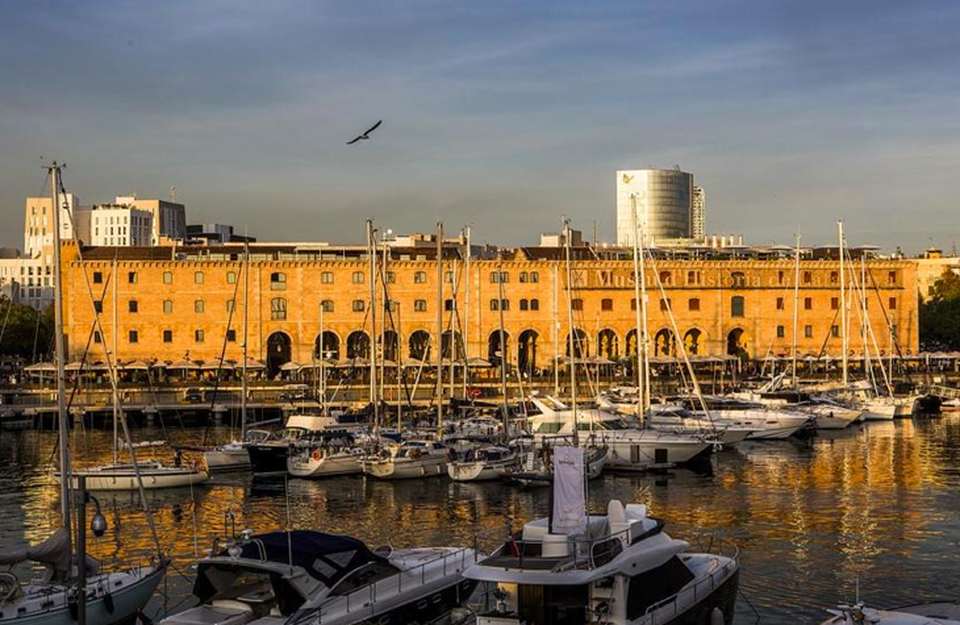
In June 2016, Barcelona Tech City opened in Pier 01, a converted building that had been a shipping warehouse, next to the Historical Museum of Catalonia. It overlooks a marina on the Mediterranean and couldn't be a more inspiring place to work. Barcelona Tech City is a private non-profit membership association led by Miguel Vicente (Chairman) and Miquel Martí (CEO) that represents the tech and digital ecosystems of the city. Approximately 100 of the total 500 members are located at Pier 01. Rents are reasonable and there's room for about 1000 individuals. Tenants are a mix of:
- Startups, accelerators and incubators, mostly in the tech and mobile sectors
- Large company innovation arms including:
- The Volkswagen Group's SEAT Metropolis Lab spinoff
- A payments innovation solution center with Spain’s La Caixa Bank, Global Payments, Visa, Arval, and Samsung working together
- VC firms including ANTAI, one of the largest in Southern Europe
The City of Barcelona is also a member and hopes to integrate the energy and business opportunities created at Barcelona Tech City with companies throughout the region. The goals of the unique cluster are to help attract local and international investment, create a more international outlook for the start-ups, help them get to the next level with legal and financial advising, connect its talent with firms needing their expertise, and provide activities and networking events so all can learn from and inspire each other. Barcelona Tech City plans to expand to more buildings in the area. The excitement and pride of working there are palpable. When I visited, employees of one of the start-ups, Carnovo, a marketplace for cars, gathered around a computer screen to watch their company’s very first TV ad. The second it aired, the entire office cheered.
Station F in Paris
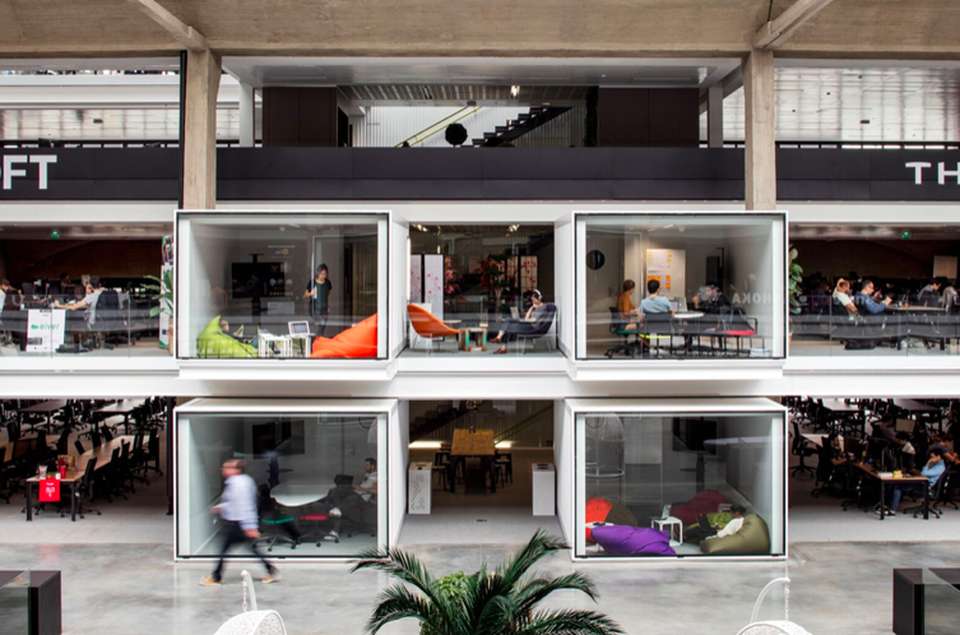
In July 2017, Station F opened in Paris, financed by Xavier Niel, a tech billionaire who wanted to give the diffused Paris start-up scene a central hub. Housed in a refurbished train depot, as long as the Eiffel Tower is high, Station F's goal is to be the biggest startup hub in the world and breakeven by charging low rates for startups to rent its open-air desks. Phase one is home to 3,000 individuals working in tech, including incubators for large multi-nationals like Facebook with their first start-up incubator, Microsoft with an Artificial Intelligence program, video game publisher Ubisoft, Airbnb, The Japanese/Korean messaging app Line, and L’Oreal, who is running an accelerator program there.
Startups at Station F span sectors from medicine, to food, fashion, software, beauty, and e-commerce. Last year France surpassed Germany in the level of venture capital funding deals, behind the UK. President Macron and Xavier Niel expect Station F to further energize the economy, providing new opportunities for the engineering and design talent France has had throughout its history.
At Station F, graffiti railway cars have been turned into cafes. There are areas for meetings, relaxation and events, and housing for entrepreneurs is planned down the road.
Buenos Aires, Technological District
Over the past decade, Argentina has created 4 of South America’s 6 unicorns (sales of over $1 billion annually). In 2007 and 2008, when Mauricio Macri, now Argentina’s President, was mayor of Buenos Aires, he started a movement to improve neighborhoods in the city’s poorer south side and simultaneously jump-start a technology and design revolution. One of the hottest new tech neighborhoods in Buenos Aires is Parque Patricos, bordering on lively San Telmo. Macri sought to bring business, investment, infrastructure, security and transportation to areas of the city that had been industrial, but isolated in part due to lack of nearby subways. A new subway stop has been added there, as well as city bike share stations.
A Norman Foster-designed building with an undulating roof in Parque Patricios is the first building in South America to be LEED Certified. Banco Ciudad and has extended bank loans to new tenants who moved to the neighborhood. The city offered tax breaks, and little by little, charming cafes and restaurants moved in. Today companies like Telefónica, the massive telco from Spain, Deloitte, and Accenture from the US, Huawei from China, Nokia from Finland, Tata consulting from India and two of the Argentine unicorns, Despegar.com (like Kyak) and Mercadolibre.com (like eBay) located there. The nearby Metropolitan Design Center and Institute of Technology of Buenos Aires, have both been catalysts for design, tech and social media-based startups coming to the area. Private/public sector collaboration has had a huge impact in developing Argentina's tech industry.
Industry City Brooklyn
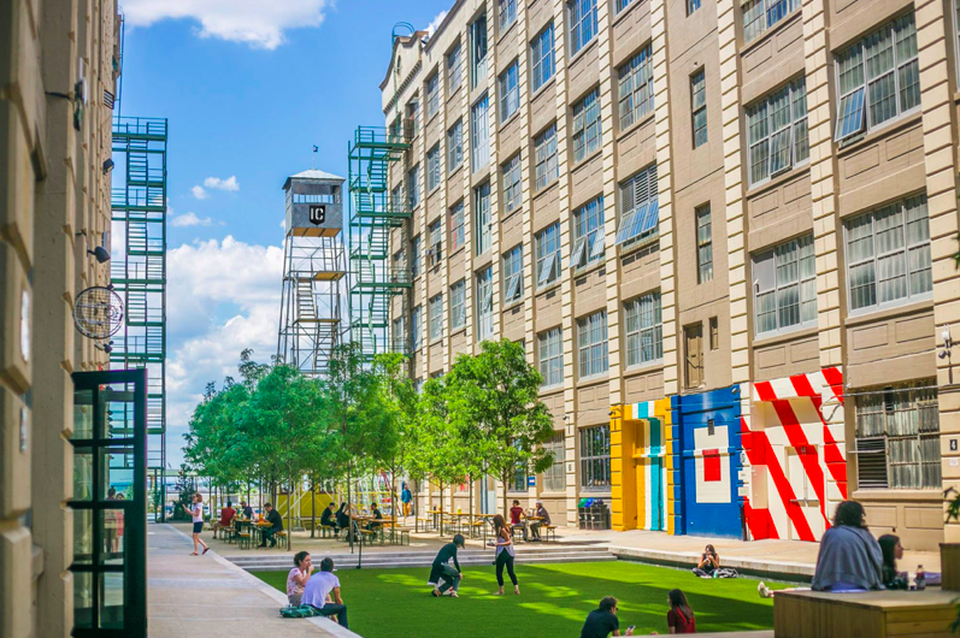
Industry City was an industrial complex built in 1906 on the Brooklyn, New York waterfront. Occupancy declined as manufacturing moved from the area. In 2013, the property was acquired by a private group, currently in the process of investing in a stunning renovation that’s turning the multi-building site into a modern manufacturing, tech, design, media, culture, and gourmet food and beverage hub. The mix of cutting edge, tenants across sectors is exceptional. Here are a few:
- Aerobo, a drone company that shoots augmented reality video for films (Stephen Spielberg’s The Post) and TV commercials.
- Time Inc’s, The Foundry native advertising agency that works with agencies, brands, and their 50 online and offline publications
- The Extraction Lab, designer of magnificent, unique process coffee makers for restaurants and cafes. Its showroom is the stunning café.
- Li-Lac Chocolate’s factory: one of New York’s oldest, most iconic, high-end chocolate brands
- West Elm’s Maker Studio, a modern-day laboratory for design where they’re developing their hotel concept
- The Brooklyn Nets Basketball Association Team’s practice area
- Curated, small, up and coming restaurants like Avocaderia, given $400,000 in February from the TV show Shark Tank’s investors
- Trend-setting design stores and home décor design startups
- Serious Eats
- Epicurious, the quintessential food and online magazine’s content studio
- ClassPass who will be live streaming classes from fitness classes in their new studio at Industry City
The Brooklyn Navy Yard
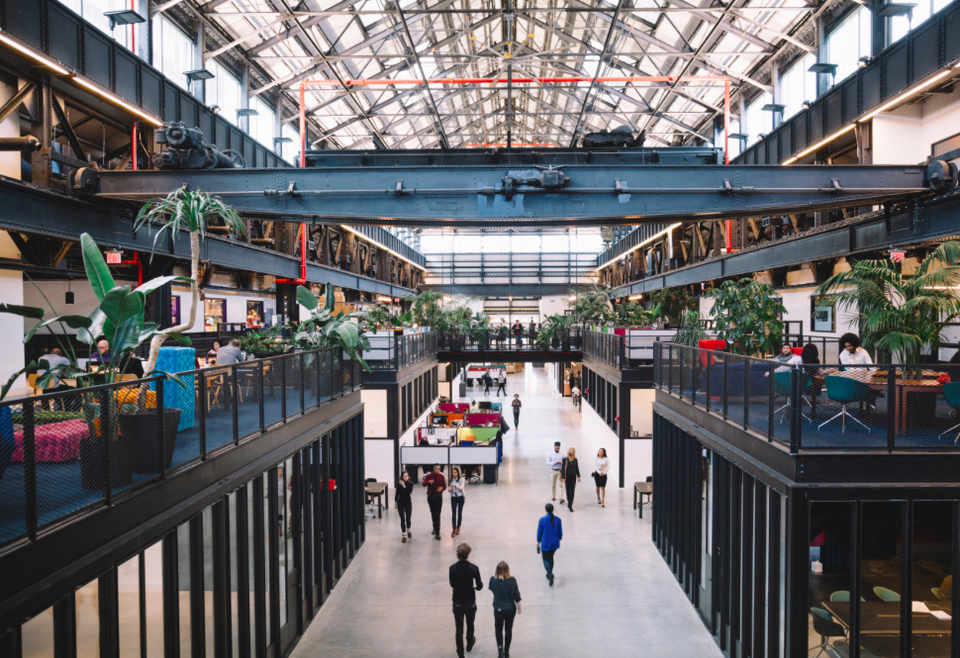
For more than 150 years, The Brooklyn Navy Yard built and launched America's most famous warships. During WWII there were 70,000 workers there. In 1966 the US Federal Government decommissioned the shipyard and expected a major auto manufacturer would take its place. None did and for decades the property was underutilized. In 2003 Steiner Studios, the largest movie and TV production studio in the Northeastern U.S., began development. Little by little, a mix of hard goods manufacturing, craft studios, food production, start-up incubators, a brewery, a whisky distillery, and rooftop agriculture have been moving in, adding back thousands of jobs and a highly creative vibe. The interesting mix of businesses includes:
- New Lab, a home for advanced technology, growth-stage startups in robotics, artificial intelligence, connected devices, nanotechnology, med tech, and indoor agriculture.
- Metal fabrication firm Situ Studio, started by grads from Cooper Union, part craft-making shop, part art studio
- Brooklyn Brewery, whose beer exported globally
- Mast Brother’s Chocolate artesanal confections
- Russ and Daughters, the oldest smoked fish purveyor in the United States, for the first time branching out from its roots on Manhattan’s Lower East Side
- CUNY’s Feirstein Graduate School of Cinema, considered by some to be second only to USC’s film school in Los Angeles
- Rooftop Reds (the first rooftop vineyard)
- Brooklyn Grange, the largest urban rooftop farm in the world
- King’s County, award-winning whiskey distillery
Greenpoint & Williamsburg, Brooklyn
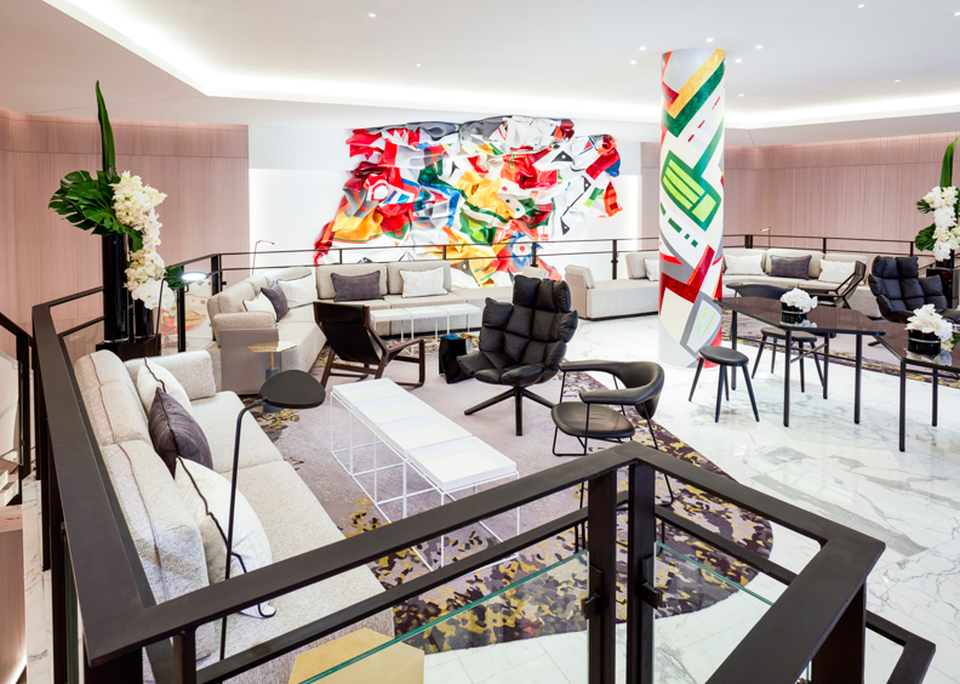
A 10-block radius including Greenpoint, Brooklyn, known for decades as Little Poland, and Williamsburg, have transformed into an innovation neighborhood, in contrast to other planned, contained hubs. Over a short time span, a mix of global brand innovation studios have opened there, to be near the creative sensibility and energy of nearby Williamsburg.
- Adidas located one of its 3 global innovation studios there. Known as Brooklyn Creative Farm, its MakerLab has been called a “Disneyland for Designers”. Talent from all over the world come there to create.
- BMW launched an accelerator for urban living ideas with a creative workspace for residents called A/D/O. The environment is light and airy and the café is run by Claus Meyer, former partner in NOMA of Copenhagen, ranked #1 Restaurant in the World by San Pelegrino several times in the past decade. Events that celebrate different types of creativity are open to the public. The goal is to support an exchange of ideas across fields.
- The Richemont Group (Cartier & Van Cleef & Arpels) has a small creative studio, tucked away in a newly renovated office building.
- Wylie Dufresne, considered the molecular gastronomy king of New York, opened an inventive donut shop
- 4 very trendy hotels have opened, including the Hoxton from Shoreditch, London, and the William Vale, with exquisite views of the East River and New York
- Colossal Media, that has revolutionized outdoor advertising by bringing back magnificent, hand-painted branded art and turning the installations into viral events
- Vice media, whose headquarters is in Williamsburg's former Domino Sugar plant
Key Take-Aways and Implications
Creative hubs, whatever the form, from neighborhoods to planned, contained communities, are stimulating environments to work in for both large corporations and startups. Success and energy breed success and energy. Exposure to creativity of all kinds stimulates creativity of all kinds. My favorite quote from Thomas Edison, who was a methodical inventor, is that “to invent you need a good imagination and a pile of junk", aka stimuli. Many of the best inventions have resulted from cross-pollination of ideas from one industry to another. Learning from what others are doing can spark the kind of random associations new ideas and better processes are built upon.
If you’re a large corporation and have not already launched a creative office away from the day to day of your own business, you might consider it. If you’re a start-up looking for an uplifting, positive and supportive, cross-sector work environment that can provide the mental nutrition to spur you on and valuable connections, you should investigate innovation hubs in the works. Since they often have reasonable rents or financial incentives to attract start-ups, sometimes in collaboration with local governments, they may not be as costly as you think.
–
Author: Michelle Greenwald
CEO of Inventours; Cornell Tech, NYU Stern & IESE marketing professor; former marketing exec at Disney, Pepsi, Nestle & JWT; author of Catalyzing Innovation; consultant




